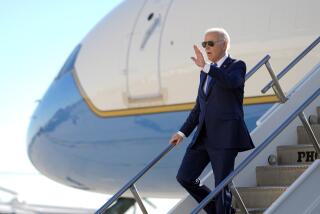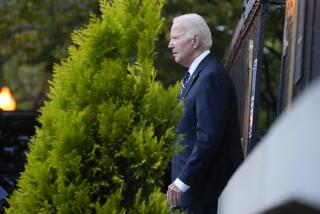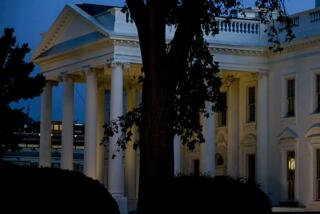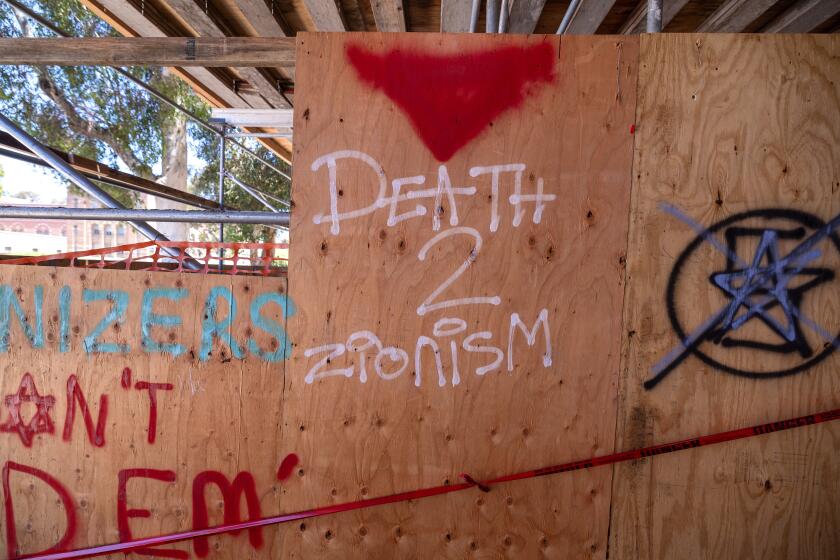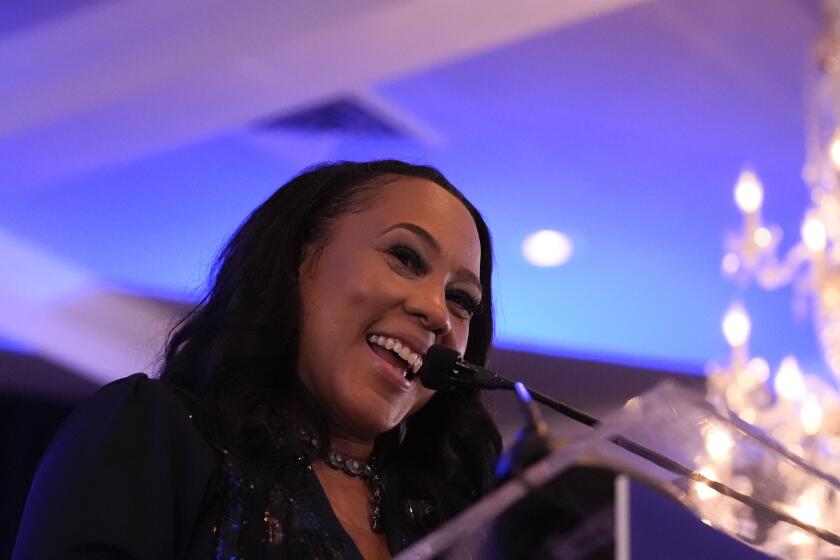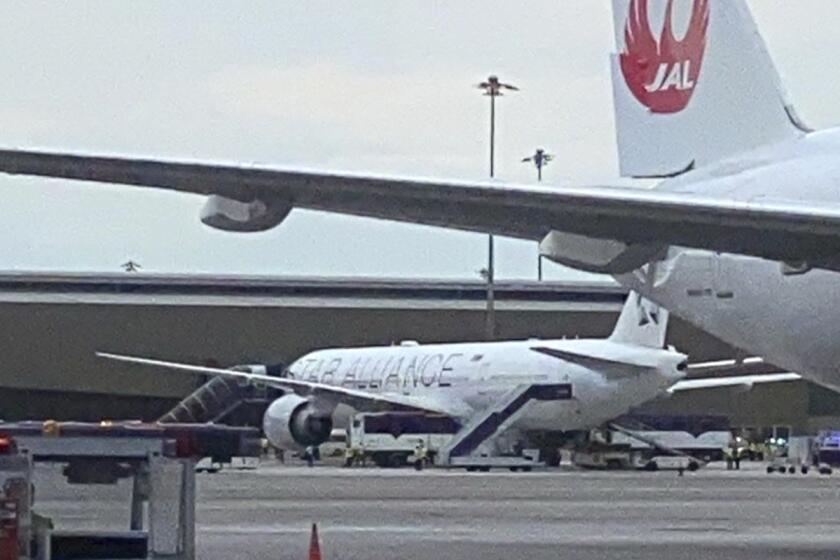Congress Will Probe Clinton Passport Search
Congressional investigators said Thursday that they suspect one or more top aides to White House Chief of Staff James A. Baker III did not tell the truth in the inquiry over the State Department’s handling of Bill Clinton’s passport file, and said they plan to pursue the issue in a probe that may take several months.
The investigators said members of Congress have asked the General Accounting Office, Congress’ investigative arm, to examine apparent conflicts in accounts of the affair given by White House communications director Margaret D. Tutwiler and White House political director Janet G. Mullins, for a report expected in January.
After that, the House Foreign Affairs Committee and Senate Foreign Relations Committee may subpoena witnesses and hold hearings, they said.
Democrats in Congress said the State Department inspector general’s report on the passport case, issued Wednesday, failed to resolve all of their questions.
“There is a question as to how effective his investigation was,” said Rep. Howard L. Berman (D-Panorama City), chairman of the House Foreign Affairs subcommittee on international operations. “He said he found no evidence of White House involvement . . . but it certainly appears that there was White House knowledge.”
A congressional investigator said the accounts given by Baker’s aides had become a central focus of the Democrats’ interest.
“They (the Baker aides) contradict each other, and the inspector general’s report doesn’t resolve that contradiction,” he said.
An aide to Inspector General Sherman Funk acknowledged that his internal inquiry had failed to explain the apparent conflicts.
Baker, Tutwiler and Mullins have refused to comment on the report.
A key incident at issue is a telephone call to the White House on the evening of Sept. 30, as State Department officials conducted a search for Clinton’s passport file that Funk determined was politically motivated.
Assistant Secretary of State Elizabeth M. Tamposi, who ordered the search, tried to telephone Tutwiler, Baker’s closest aide, to consult with her about the operation.
But when Tutwiler’s secretary told her of the incoming call, the Baker aide refused to pick up the telephone.
Mullins, who was in Tutwiler’s office at the time, told Newsweek: “We both had the same reaction: Eeek, you can’t talk to her.”
But Mullins and Tutwiler gave State Department investigators different accounts of Tutwiler’s reason for refusing the call.
“Tutwiler told Mullins that she did not think it would be appropriate for her to become involved in the Clinton files matter,” the report says in a passage based on Mullins’ account. But at another point, the report says: “Tutwiler stated that she had no knowledge of Ms. Tamposi’s involvement in the search of Gov. Clinton’s files.”
In a briefing for reporters on Wednesday, Funk said he suspects that Tutwiler and Mullins knew more than they acknowledged.
When the call came in to Tutwiler’s office, “I suspect that Janet (Mullins) said, ‘That’s probably about this business of the passports and don’t take the call,’ ” Funk said.
“Because of the fact the telephone call was placed at about 6:23 p.m.,” when the search was actually under way, “. . . and was refused to be taken by Ms. Tutwiler, my supposition--yes, my supposition--is that there was knowledge at that time,” he said.
He said he had arrived at “a presumption” that Mullins knew about the search and considered it “a possibility” that Tutwiler also knew, despite her denial. Baker also learned about the search within a day, he noted in his report.
Funk emphasized that there was no evidence that Baker, Tutwiler or Mullins was actively involved in the search.
But the Democratic congressional investigators said their interest has shifted partly to the question of whether Mullins or Tutwiler gave false information to the inspector general--a potential crime.
A State Department official, speaking on condition of anonymity, dismissed the questions.
“These guys are just trying to trash us,” he said.
He said that, if Mullins and Tutwiler knew about the search as it was under way, “It could be quite legitimate.” The State Department says it was not necessarily improper to search for Clinton’s files, because three news organizations had made requests under the Freedom of Information Act. What was improper, the department says, was the politically motivated haste and involvement of senior officials in the search.
Times staff writers Norman Kempster and Ronald J. Ostrow contributed to this story.
More to Read
Start your day right
Sign up for Essential California for news, features and recommendations from the L.A. Times and beyond in your inbox six days a week.
You may occasionally receive promotional content from the Los Angeles Times.
